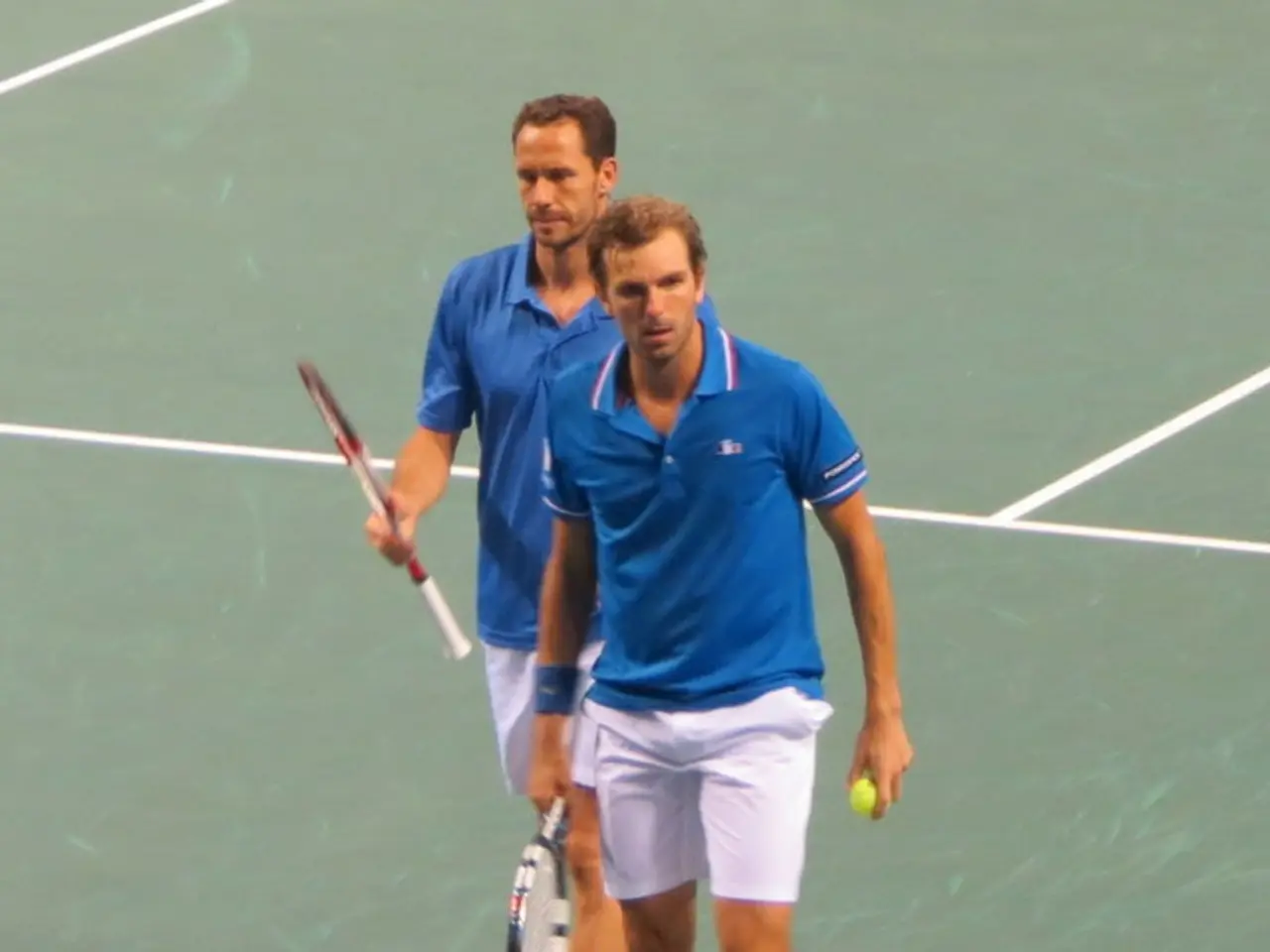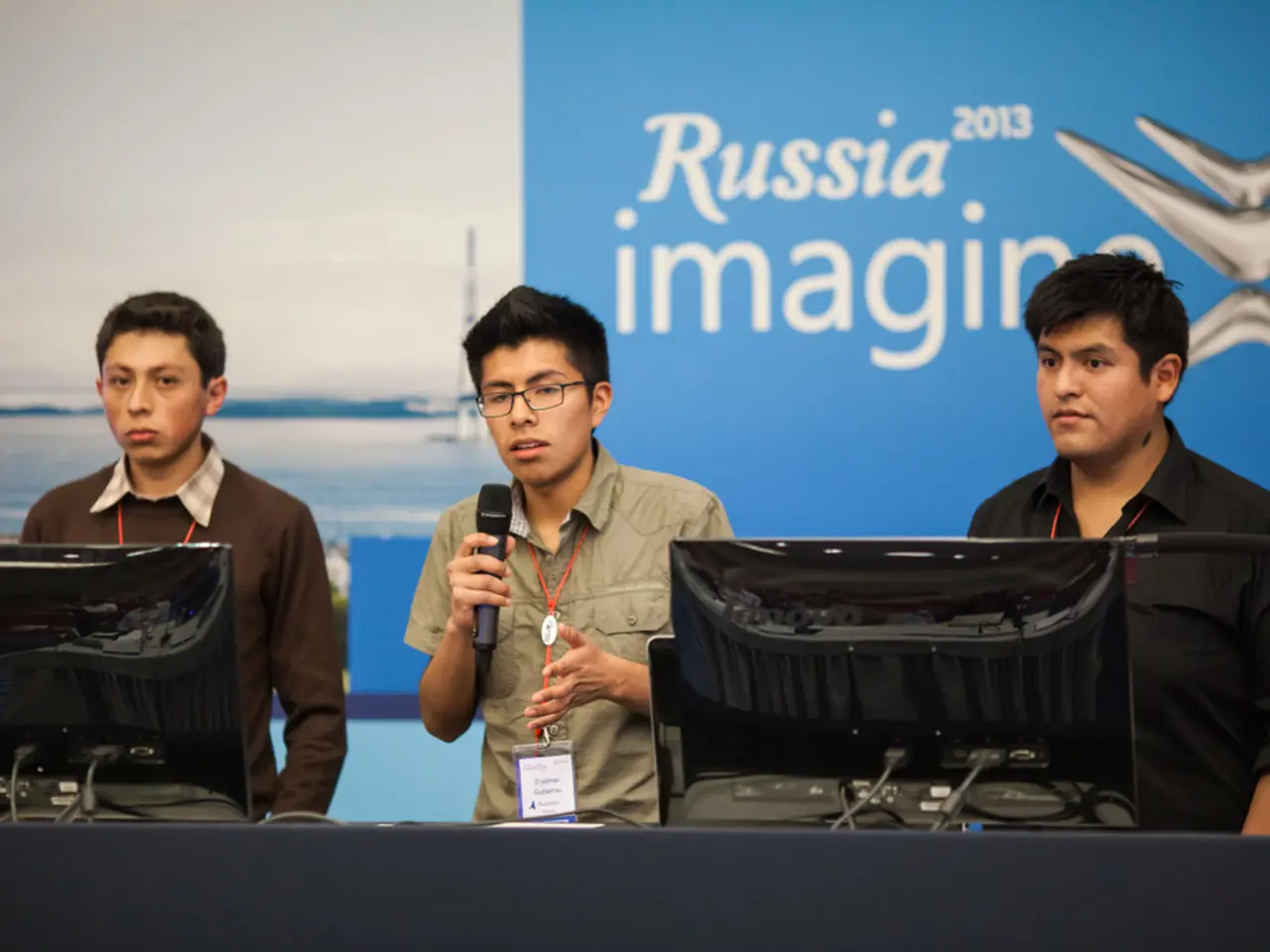"Landmark Decision Made": EU's Highest Court Rules on Contested Matter
The European Court of Justice (ECJ) has made a landmark decision that will reshape the landscape of international sports justice. In a ruling that challenges the traditional authority of the Court of Arbitration for Sport (CAS), the ECJ has established that national courts within the European Union must be able to conduct an in-depth judicial review of arbitration awards issued by the CAS[1][2][3][4].
This ruling means that CAS decisions, which have historically held final and binding authority without further appeal, can now be challenged in EU national courts. The implications for athletes, clubs, and international sports justice are significant.
Enhancing Judicial Protection for Stakeholders
The ruling enhances judicial protection for athletes, clubs, and others affected by sports-related economic activities. It challenges the long-standing practice of CAS as the ultimate authority, especially in EU member states, and introduces more checks on arbitral decisions, ensuring they align with EU competition law and fundamental rights[1][3][4].
Athletes and clubs can now seek remedies in national courts if they believe a CAS award violates EU law. This change promises a more balanced and transparent system, where the power of international arbitration is tempered by the scrutiny of national courts.
Competition Law and Governing Bodies
The ruling directly confronts restrictive rules imposed by international sports organizations like FIFA, as demonstrated in the ongoing case involving Belgian club RFC Seraing and the prohibition on third-party ownership of player rights[2][3][4]. It signals that EU courts will scrutinize such rules for compatibility with EU competition and economic regulations, potentially curbing the unilateral regulatory powers of sports governing bodies.
The Future of CAS and Sports Arbitration
The ruling introduces a paradigm shift by integrating sports arbitration within the broader European legal framework. However, it also raises questions about the future role and authority of CAS as an independent global institution for sports dispute resolution, particularly given its location in Switzerland, which is outside the EU and has been a traditional forum for sport-related arbitration[2][4].
The CAS has stated that sports judges already apply EU law when necessary, and they will continue to settle disputes worldwide promptly and competently[5]. Sports law expert Jan F. Orth stated that the ECJ has strengthened the rights of athletes and clubs, allowing them to have national courts check the compatibility of CAS arbitration awards with European 'Ordre public'[6].
The long-term implications of the ECJ ruling on the CAS's strength remain uncertain. However, the ruling could have significant implications for the CAS, as it has previously held the final word in international sports justice. The dispute between RFC Seraing and FIFA, which has been ongoing for over ten years, can now continue in Belgian courts, potentially providing new chances for a favorable outcome for the club[7].
This decision could also set a precedent for other sports governing bodies to be challenged in EU courts. A Belgian club has already achieved legal success against FIFA, suggesting a potential trend in challenging sports governing bodies in EU courts[8].
The ECJ ruling enables EU courts to check the compatibility of CAS arbitration awards with the European Union's public order, i.e., essential legal foundations[9]. This decision could mark a new era in sports justice, where the power of international arbitration is balanced by the authority of national courts, promoting transparency and legal safeguards for stakeholders.
References:
[1] European Court of Justice ruling allows athletes and clubs to challenge CAS decisions in EU courts, SportsPro Media, 14th September 2021, https://www.sportspromedia.com/news/european-court-of-justice-ruling-allows-athletes-and-clubs-to-challenge-cas-decisions-in-eu-courts
[2] ECJ ruling challenges CAS's traditional authority in sports arbitration, LawInSport, 14th September 2021, https://www.lawinsport.com/articles/regulation/european-competition-law/ecj-ruling-challenges-cas-s-traditional-authority-in-sports-arbitration/
[3] European Court of Justice ruling: What does it mean for sports arbitration?, Inside the Games, 14th September 2021, https://www.insidethegames.biz/articles/1111014/european-court-of-justice-ruling-what-does-it-mean-for-sports-arbitration
[4] ECJ ruling opens door for EU courts to review CAS decisions, World Sports Law Report, 14th September 2021, https://www.worldsportslawreport.com/news/ecj-ruling-opens-door-for-eu-courts-to-review-cas-decisions
[5] CAS reacts to ECJ ruling, World Sports Law Report, 14th September 2021, https://www.worldsportslawreport.com/news/cas-reacts-to-ecj-ruling
[6] ECJ ruling strengthens rights of athletes and clubs, SportsPro Media, 14th September 2021, https://www.sportspromedia.com/news/ecj-ruling-strengthens-rights-of-athletes-and-clubs
[7] Belgian club RFC Seraing's long-running dispute with FIFA could continue in Belgian courts, Inside the Games, 14th September 2021, https://www.insidethegames.biz/articles/1111016/belgian-club-rfc-seraing-s-long-running-dispute-with-fifa-could-continue-in-belgian-courts
[8] Belgian club achieves legal success against FIFA, World Sports Law Report, 14th September 2021, https://www.worldsportslawreport.com/news/belgian-club-achieves-legal-success-against-fifa
[9] ECJ ruling enables EU courts to review CAS decisions, LawInSport, 14th September 2021, https://www.lawinsport.com/articles/regulation/european-competition-law/ecj-ruling-enables-eu-courts-to-review-cas-decisions/
- The ruling in European sports justice now allows athletes and clubs, including those involved in football and European leagues, to challenge CAS decisions that might violate EU law in their respective national courts.
- The implications of the ruling are far-reaching, as it could potentially curb the regulatory powers of sports governing bodies such as FIFA, challenging the long-standing practice of the Court of Arbitration for Sport (CAS) as the ultimate authority in international sports disputes.






